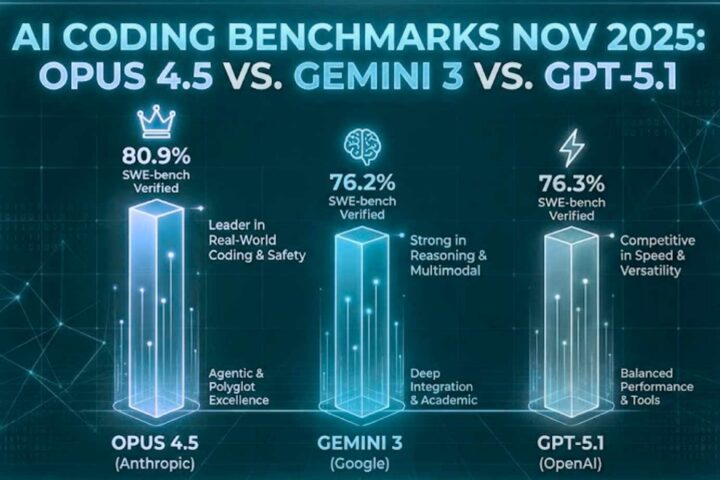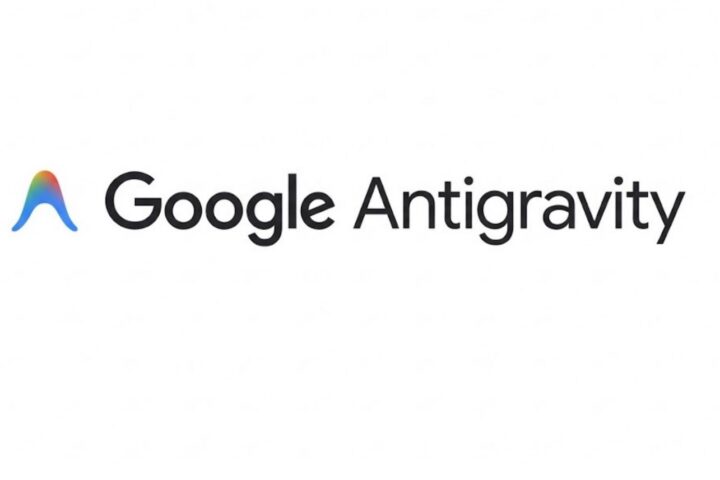As a consulting firm, clients are the lifeblood of your business. It’s not just about acquiring them, you also need to make sure they’re delighted enough by your services to retain them.
However, if you have a piecemeal sales process without a clear view of all the deals in your pipeline, you won’t achieve the best results. If you’re using a hodge-podge of Excel spreadsheets and documents to track deal flow and new leads you could be missing out on dozens of opportunities—which means missing out on hundreds, if not thousands, of dollars.
The solution to this mess? Get yourself a CRM system. In this guide, you’ll learn what you should look for in a CRM for your consulting firm, and how to use it to create a better sales and business development system.
What is a CRM system?
A Customer Relationship Management (CRM) system helps manage customer data. It supports sales management, delivers actionable insights, integrates with social media and facilitates team communication. Cloud-based CRM systems offer complete mobility and access to an ecosystem of bespoke apps.
Why do you need a CRM For Consultants?
A CRM system can help you identify your most profitable clients (and show you where you’re spending too much time with unprofitable clients) so that you can focus your efforts on the ones that will deliver the most rewarding outcomes.
A CRM system can help you to improve your sales pipeline by tracking the stages your deals go through internally before they’re finally closed. It also offers a one-stop-shop where you can collect and store contacts, leads and company information all in one secure location.
The five things you need to look for in a CRM system are: fast onboarding, a nice interface, the ability to configure and customize workflow, powerful reporting and real-time collaboration.
Generate revenue
Given the amount of time your team spends on creating and nurturing relationships with new leads and clients, it stands to reason that you should derive the most benefit from those relationships.
The financial, strategic, and operational value of prospects, customers, and partners should be measured in the context of revenue—either directly or indirectly.
A data-driven CRM can help you:
- Quickly determine the size of the opportunity.
- Marketing to the right companies.
- Identify the right decision maker and influencers.
- Form stronger relationships with your top prospects.
- Find new ways to market.
- Get your sales team to focus on top priorities.
- Track, administer, and manage all of your deals.
You need to know who is doing what, when, why and how. Not in isolated incidents or at particular points in time, but seamlessly and continuously.
This information will help you to adjust your actions to make sure everyone is working on the right deals at the right time.
Know when to change how you work
To keep up with the speed of change we find ourselves bombarded by it on a daily basis. Being able to identify trends in business practices is becoming more and more important to success.
A CRM will give you the ability to instantly access a complete view of customer needs and trends, so you can stay ahead of the curve.
For example, if your client has recently implemented a new policy in their industry, the CRM will allow you to determine whether it’s worth revisiting a prospect in light of this new information.
Now you won’t just be having “Google Alerts” for whatever industry news you follow most closely. You’ll know whether it’s worth investing in that new approach—and you can tell your sales team, too.
The CRM will also help your sales team to tailor their pitches and marketing messages for each client. Instead of peddling the same message to everyone, your team will be able to deliver highly relevant information to each individual prospect.
Learn from the top of your funnel
The lifetime value of your clients determines your success. One way to improve your results is to drive longer value from the highest-value clients. You won’t get there by blindly following your gut or chasing “the next big thing.”
Get specific. Know which of your clients account for the most of your top-end revenue, so you can specifically tailor strategies to win more from them. This is a powerful way to build your business.
For example:
If your clients spend between $2,500 and $5,000 on a service, implement the same care and attention to detail on them that you would on a client spending $100,000.
If you treat all clients the same then you’ll miss out on securing larger, more rewarding deals.
Think carefully about where you take your time and efforts.
Think carefully about where your time goes
The time you spend is a huge asset for your business. For example, one hour of your time can cost $250 to your business.
A CRM will help your sales cycle by reducing time spent on administrative tasks and generating more leads and potential clients.
Get your sales team to spend more time meeting with clients, developing their relationships and closing them.
Prevent lost deals
No matter how good the sales team is, lost deals are going to happen. But if you are able to catch more of these lost deals early and more often, then your bottom line will look better.
Having your sales team record key information about their opportunities from the very beginning is a key part of maximizing your revenue.
In general, more success stories = more profit. The more contracts you win, the more money you will make. The easier a CRM system is to use, the quicker you’ll win more deals.
A good sales pipeline won’t just help you win multi-million dollar deals. You’ll also have a clear view of how many of your deals are progressing. If you have more deals you’re working on, the more deals you’ll close.
Get insights into what matters
Every day, tons of new information is produced; most of it is irrelevant to your sales process.
But not all of it is!
Some of it can offer clues as to how to better position your services to potential clients.
There is a fine line to walk when it comes to too much information. Some business leaders are wary of using a CRM because they are concerned it will require them to ignore social media or similar channels. It’s a valid concern because, let’s be honest, you can sometimes spend too much time on Twitter or Facebook.
But with a CRM, you’re freeing yourself up to dedicate time to networking, prospecting and other more valuable and profitable activities. The CRM should make you money, not drain it.
Having a CRM that, in effect, highlights the right information at the right time, will help you WIN.
Retain clients
Most CRM solutions include sales management and automation tools that allow you to understand and qualify sales opportunities, track deals in real time, organize the sales process, send personalized email messages and close more business.
A CRM will not only help you retain clients, it will also help you to retain your client’s happy employees. This technique will help you gain more clients in the future.
Focus on the business. Not the tools
“The right tool for the job” is an oft-overlooked business strategy.
Think of it this way: How much value would your business gain from getting a year ahead in making marketing plans for the next three years, instead of using a CRM that enables you to make new sales today?
The right tool for the right job is the key to business success. Can you imagine spending hundreds or thousands of dollars on marketing just so you can have a CRM that supports the way you do things?
Also, technology is constantly changing. You need a tool that doesn’t change as often as the technology industry. A CRM that is 100% customizable can change with your company.
A good CRM system will help your company improve productivity by increasing the sophistication of what you can track and measure. The more sophisticated you are, the better chance you have of closing deals.
- Follow these steps to track critical business data.
- Understand what’s happening today
- Track details of every customer interaction.
It’s easy to segment customers by location and industry. You can also build your own affinity groups within a demographic. Adding additional information to client records gives you the power to ask relevant questions and track how your clients are reacting to sales ideas.
The benefit of tracking clients-created groups, for example, is that you can view performance trends at-a-glance of how your top clients are performing by industry.
- Understand what’s happening today
- Use your CRM to instantly understand trends in your business.
- Are your top clients in the industry you’re targeting?
- How about top clients in a specific location?
- Are you closing more sales in one month than another, and why?
- Which of your clients have the highest average sale price and why?
- With a powerful CRM, you will be able to view trends by region, by industry, by lifetime value, or anything else you choose.
- Are there any trends you want to act on today?
- Understand what’s happening tomorrow
With a CRM that generates a sales pipeline, you will be able to see exactly who is in your “ready to close” territory.
You will also be able to anticipate revenue opportunities and contact potential clients in advance to make sure your schedule lines up with theirs.
A sales pipeline tool will make your business more successful. Plan your week by looking at today’s business opportunities. Then look ahead to the following week.
- Who do you need to reach out to?
- Who do you need to follow up with?
- Who do you need to book calls with?
- Are you already on track to hit your goals?
- If not, why not? What needs to change?
A CRM with a pipeline will help you manage your time and keep you on track towards achieving your goals for the day, week, month and year.
There is a rule of thumb that is also worth following: 80% of how successful you will be can be accounted for by 20% of your activity.
That 20% is going to be the most effective way to spend your time!
- How will you use the information you glean from this tool?
- These are the two most important questions you can ask yourself.
- What do you respond to?
Ask yourself these questions daily: What if this was the last week I had my company? What if this was the last month I had my company?
These questions force you to look at your business from a completely different perspective. Maybe that thinking will help you figure out the best way to close a deal.
Is there a better way to say what you do?
Have you listened to how other people talk about you or your service? Do they know how to describe it?
Maybe you should model your USP on their description.
Example: If clients are describing you as the “Pepsi of Law Firms”, then that’s what you should be saying every time you talk to a new potential client.
Include a personal message.
This is a message from the salesperson to the customer.
Be sincere.
Always close the letter with what you want.
Let the client know what you want and when you want it.
That way the agenda is clear .
If the client doesn’t call, follow up to make sure they received and read your letter.
Use the CRM to customize your approach to every client. If you email each client and follow up by phone, your message will be exactly right for each one.
The pop box will say exactly what they like to hear. Not what other potential clients want to hear.
Be sure to have all the material collected for your proposal ready before you reach out.
You never want to waste a meeting.
When you follow up by email, be sure to send files that allow them to easily store and research, and review when they are ready to take the next step.
Be Present: Use a CRM
- Do you know what’s holding you back?
- Are your sales people spending too much time pretending to do work?
- Are you doing everything yourself instead of delegating?
- Are you distracted easily by text messages and emails?
- Do you have constant interruptions because your team doesn’t know what to do?
These problems are common in sales teams. They are also common in every other part of the business.
- You will be much more successful if you focus on fewer things.
- Focus on your end result.
- The only thing that matters is getting the sale.
- Use your CRM to stay focused on your end result.
The CRM is the best tool for making your business more successful because it rewards you for focusing on your end result.
- If you have the right tool, you will also have more fun.
- If you don’t, you will be stuck trying to remember what you were doing.
- The right tool will make your life so much easier!
- Everything you do can be tracked and measured.
You will be amazed at how much you know about your business once you start tracking everything.
Let your CRM make you smarter.
The key to success in any business is knowing what you are doing and why you are doing it.
- Don’t waste your time unless you are moving towards your end result.
- Track everything in your CRM
- Monitor your time
You’re using your CRM to promote your company’s end result.
- But what is it?
- How can you be successful?
Define your end result.
You should know what you are trying to get your customers to do when they walk in the door.
If you know, you can track their progress along the way.
When you get clues about what they did or didn’t do to close the deal, you can step in and offer help .
The right CRM will also help you find buyers who are ready to buy now.
Take a minute to name on thing you want to get out of every conversation.
When you understand that, you are better able to manage your time and your actions.
You are better able to measure how well you are doing.
If you don’t know where you’re going, how will you figure out where you are?
Schedule your day around an end result
Integrate your CRM with your task management tool.
That way, when you get into the office, you’ll be able to see at-a-glance what you need to do for today.
It frees up your time so you can focus on other tasks that are harder is going to be.
Don’t waste your time doing a bunch of stuff that doesn’t get you closer to your goal.
Give each day a goal. This forces you to focus on the most important task you have.
For example, if your goal is to close one deal this week, you will know exactly how much time you need to spend on each customer each day.
Generally, you’ll be able to close a deal in much less time than that.
Now you have time to investigate which customers are not ready to buy.
Those customers fall into three groups:
A deep investigation of your list will reveal which customers are really interested in your product or service.
Using The Win Forever Mindset, you will be able to tell which customers you can help with something you sell.
You will also be able to tell which customers are right for another product or service.
Using The Win Forever Mindset, you will be able to tell who is interested but not ready.
They need to hear more from you. And they need to hear it in a different way.
Every customer’s situation is different.
Each one must be approached with the right message.
Make up your mind about which 3-5 customers you want to go for this week.
Leave the rest for another day.
Use your best tactics for those 3-5 customers.
Make those tactics your top priorities for today.
Allot the rest of your time to marketing, R & D, and anything else you need to spend your time on.
Don’t put off what you want today until tomorrow
When you don’t manage your time and information, you are sure to put off the work that is your top priorities.
Every day’s top priority should be on your task list.
It should always be the first thing on your to-do list.
It’s your job to make sure you are doing what your customers want — not what you want or what they say you should do.
The easiest way to lose a customer is to tell them what they want. They don’t know what they want!
It’s your job to give them what they need.











